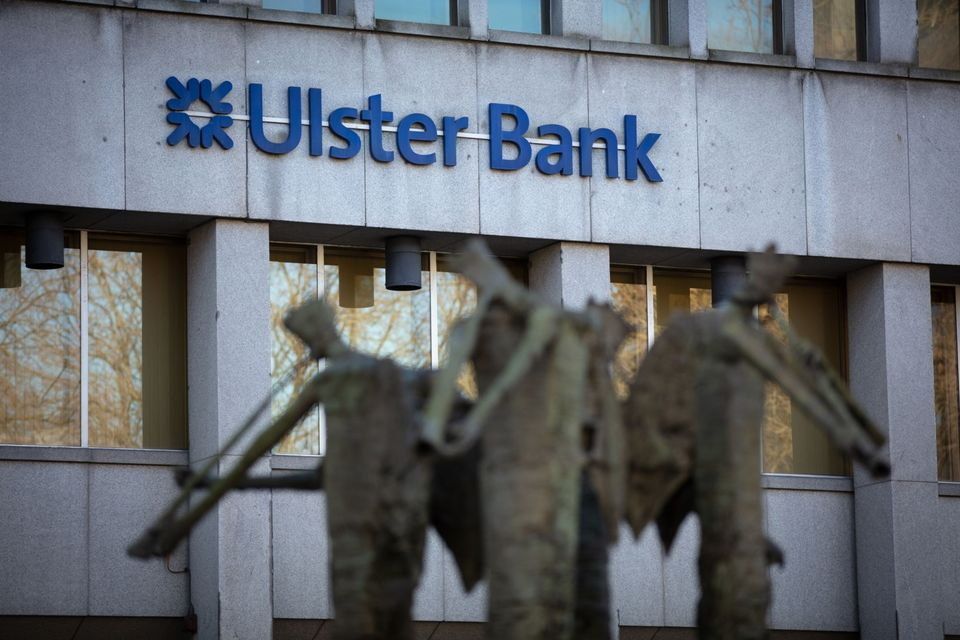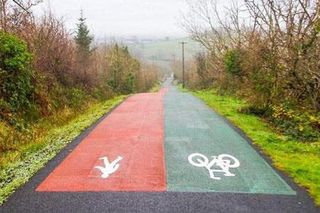Ulster Bank to pay compensation for removing key feature of mortgages it can't sell
Ulster Bank is getting out of this market.
Ulster Bank is to move on a tranche of mortgages that it has not been able to sell off.
The bank, which is closing down in this market, is to offer compensation to around 4,500 holders of offset mortgages.
Average payments will be around €12,650.
Offset mortgages are home loans where money held in linked savings or current accounts can be set off against the balance owed on the mortgage.
This means that if someone still owes €100,000 on an offset mortgage, and they deposit €10,000 into the account, they only pay interest on €90,000.
Interest on the mortgage tracks the European Central Bank rate, with the typical margin at 1.15pc over the ECB rate.
As the bank is closing down, it no longer offers current or deposit accounts. This means it will remove the offset feature of the mortgages in six months’ time.
No other lender offers offset mortgages in this market, and the bank has been unable to sell the loans due to their complicated features.
Offset mortgages were originally offered by First Active, which was taken over by Ulster Bank. But this type of product has not been sold in this market since 2008.
Ulster Bank said it had calculated what the loss of the offset feature will mean for each of the 4,500 customers and will make what it calls ex-gratia payments to them in January for the loss of this feature.
The departing bank said customers will retain their tracker rate, and the ability to reduce mortgage interest payments through the ‘Pay and Redraw’ facility feature.
And the mortgages will stay with Ulster Bank for now, pending a sale.
The pay and redraw facility is essentially like the offset feature.
This is where someone with spare funds on deposit can move those funds into their mortgage account, rather the funds into a deposit of current account linked to the mortgage account.
This reduces the mortgage balance amount owed and reduces the amount of mortgage interest to be paid.
Customers also have the option to withdraw those funds should they require them, subject to the terms and conditions.
Both ‘offsetting’ and ‘pay and redraw’ have the same overall effect of allowing customers to reduce their mortgage interest payments. This is despite the fact they operate differently.
For the loss of offsetting, Ulster Bank said it has calculated what offsetting would have been worth to each mortgage account had the customer retained and continued to use the feature out to the end of their term, based on past usage.
This calculated amount will then be doubled.
All customers will receive at least a minimum ex-gratia goodwill payment of €5,000.
The maximum ex-gratia goodwill payment to be made to customers will equate to the total future mortgage interest payments a customer would have to pay out to the end of their term.
Customers will also receive €250 for independent financial advice.
Customers are being given six months’ notice to close the savings and current accounts that have been linked to their offset mortgage, with the deadline on May 23 next.
In cases where the customer is in arrears on their mortgage, the ex-gratia goodwill payment will be used to reduce these arrears.
The average term left on the offset mortgages is 11 years, with an average balance of €106,000.
The bank is still hoping to sell the offset mortgages.
This year it sold its tracker mortgage book to AIB, and its fixed-rate portfolio to Permanent TSB last year.
Ulster Bank chief executive Jane Howard said: “The arrangement we have now put in place brings certainty for these customers, it retains as much of the product as possible, in particular the Pay and Redraw feature which reduces interest paid on the mortgage, while recognising the removal of the offsetting feature.
“The solution also takes into account the future value of the product because this product is no longer available in the market.”
Asked if it was forced to offer compensation by the Central Bank, Ulster Bank would only say that it was its proposal to make ex-gratia payments.
Join the Irish Independent WhatsApp channel
Stay up to date with all the latest news















